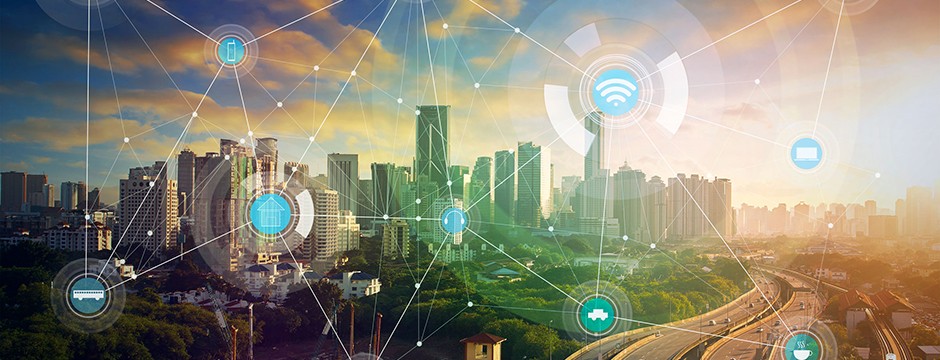There is no doubt that technology is rapidly changing urban living.
We are all now using the term “smart cities” to describe the connected world of people, devices, and services within the cities, where converging digital technologies are reshaping literary…everything!
Critical infrastructure, transportation, health & medical services, energy distribution and consumption, waste management, public and private utilities are now becoming part of a super-connected digital ecosystem, with a has a significant impact on the way we work, commute, communicate, educate and look after ourselves.
However, connected devices in the world of Internet of Things have no use without the compute power to leverage the potential of the data that gets generated. Modern, scalable data centers are the only organizations with the potential to handle the amount of big data about to be created in the coming years, and thus, provide the foundation for smart cities to develop efficiently.
Cities will either grow smart or they will not grow at all
Rough estimates predict that more than 80% of the population in the western countries will be living in an urban environment by 2030. The pressure will be much higher in developed countries. According to the World Resources Institute, over 92% of the UK population will be concentrated in big cities by 2025-2030.
With a short – term focus on key economy verticals such as transportation, energy, waste, water and assisted living, the cost for smart city solutions is expected to reach $400 on a global scale in the next 5 years.
Big Data will become extremely BIG
Connected devices used by people and embedded in the physical environment and infrastructure will generate massive amounts of data. This data will then be analysed and “translated” – in real time – empowering decision makers with amazingly useful information to manage the most critical city functions, such as: managing power and natural resources based on demand, redirecting traffic of autonomous vehicles according to traffic conditions, coordinating waste volumes and waste management facilities, and of course many more.
It is estimated that these data driven cities will require global networks to distribute more than 40.000 Exabytes of data, even by 2020. Today, processed data running across global networks is estimated approximately at 130 Exabytes.
It goes without saying that security and resilience will also be fundamental for the safe management of data. Outage for any reason and issues such as latency will cause significant drawbacks.
Data centers will become the foundations of life
Based on the volumes of the data about to be distributed and the need for resilience and security, it is well understood that only advanced data centers will be able to efficiently support the needs of smart cities.
Some even say that smart cities will never exist without the data centers.
It looks like they are right! Let’s see what the future holds.
For all we know, here at Lamda Hellix, we are ready to support even the most demanding smart city requirements in the CEE region! Find out more about us here.


